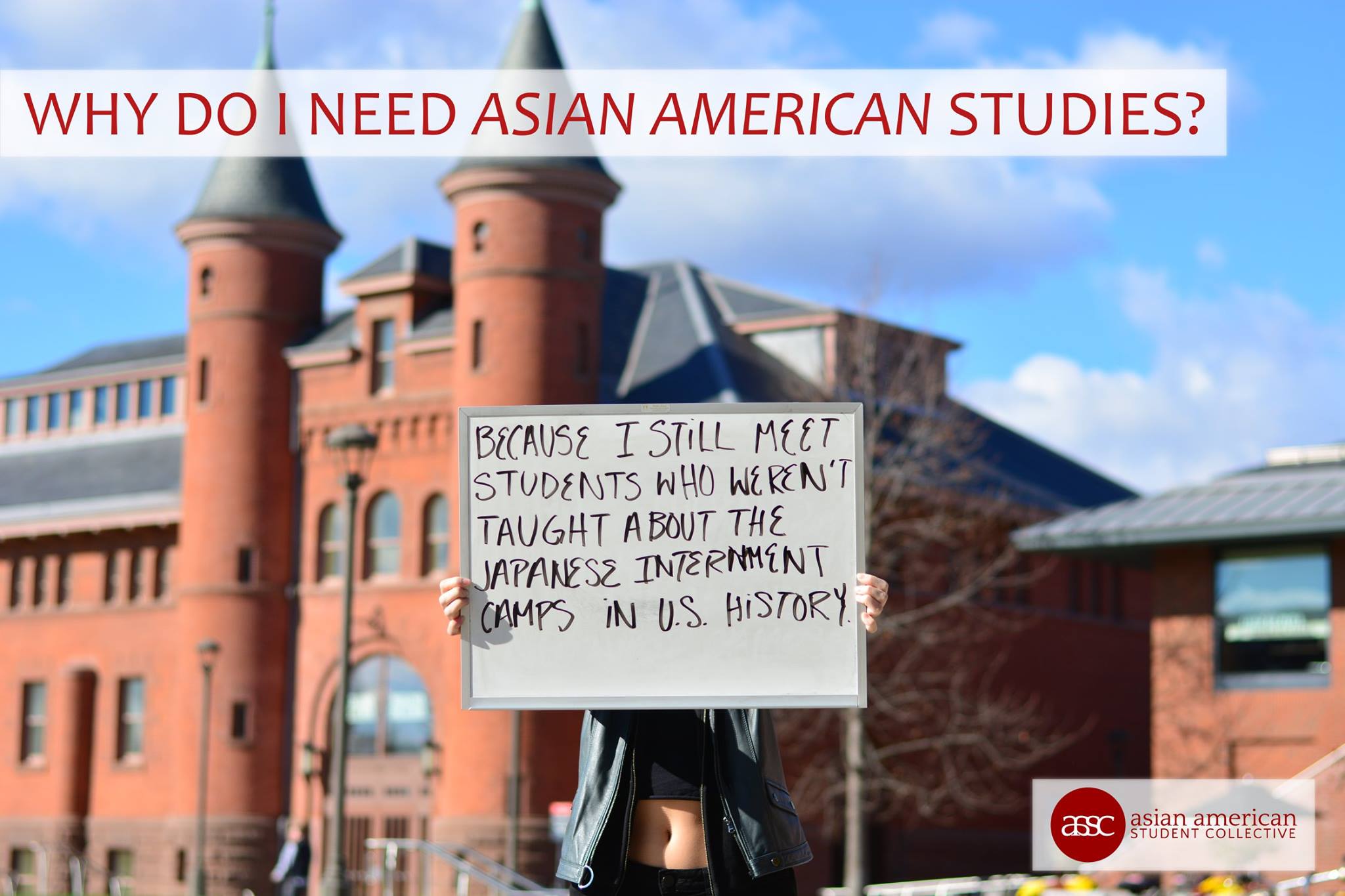Note: Serena Chow ’21 is an Assistant News Editor at The Argus.
The University’s Educational Policy Committee (EPC) unanimously approved the creation of an Asian American Studies course cluster on Thursday, Sept. 26. The course cluster was proposed and submitted to the EPC by Associate Professor of English and American Studies Amy Tang.
The cluster’s creation is a result of long-term efforts to develop Asian American Studies at the University, led by students in collaboration with members of Wesleyan’s Asian American Student Collective (AASC) and faculty.
Establishing an Asian American Studies course cluster would not create a new academic department, however, or require any new faculty or staff to oversee the program. Instead, it would just group Asian American Studies courses together. The timeline for the course cluster’s implementation has not yet been confirmed.
“The primary aim of the course cluster is to help students and faculty advisors easily identify courses related to the field of Asian American Studies,” Tang wrote in an email to The Argus. “Wesleyan currently offers a number of courses in this field, but the courses originate in several different departments…so a designated course cluster on WesMaps will make it much easier for students and faculty to find courses in this area. It is also my hope that highlighting Wesleyan’s strengths in the field of Asian American Studies could both attract prospective students and inspire current students to pursue scholarship in this field.”
On Sept. 26, Tang met with the EPC to discuss the proposal and take questions from committee members. After Tang left, the committee continued their discussion, eventually voting to approve the proposal.
“The meeting was very straightforward, with the EPC asking about mainly about how the courses were chosen—e.g. how it was determined that the content of the courses listed were relevant to Asian American studies, whether all the courses were offered by permanent (not visiting) faculty,” Tang wrote.
Members of the EPC remarked at how impressed they were with the proposal, and expressed their excitement at what the course cluster could offer to students.
“The committee felt that it would be an enhancement to the Wesleyan educational model of putting a lot of responsibility for their education directly on the students,” Professor of Astronomy and Chair of the EPC William Herbst wrote in an email to The Argus. “We need to provide as much information for students as possible so that they can make wise choices about their courses. This proposal will obviously be of assistance to many students and we are glad to support it.”
Jake Kwon ’21, one of the two undergraduate students who sits on the EPC, praised Tang for her description of the cluster.
“Professor Amy Tang did a really good job with explaining to us what that course cluster was going to look like,” he said.
At present, the only courses included in the cluster are taught by permanent faculty, but in the future, Tang plans to include relevant courses from visiting professors and help faculty to develop courses for the cluster.
While those involved in the creation of the course cluster agree that this was a success, students still hope for continued commitment to the development of Asian American Studies at Wesleyan.
“I’m really happy with the fact that the Asian American Studies course cluster was finally approved, I think it’s a really great step in the right direction,” Serena Chow ’21, one of the co-leaders of AASC who was involved in crafting the course cluster’s proposal, said in an interview with The Argus. “But I definitely think that I don’t want the course cluster to be the ending note of this whole discussion about Asian American Studies at Wesleyan, rather I want it to be the start of something.”
Kyle Shin ’20, a co-chair of AASC, told The Argus that he also hopes the future of Asian American Studies at Wesleyan develops beyond the introduction of the course cluster.
“As excited as we are about the confirmation of the course cluster, it is just the first step for getting an Asian-American Studies (AAS) program at Wesleyan,” Shin wrote in an email to The Argus. “I hope to see significantly increased enrollment in AAS cluster classes and a desire for more AAS professors.”
However, Tang says that she currently has no plans to expand Asian American Studies beyond the course cluster.
“They [the EPC] also inquired about whether I had plans to propose a certificate or minor, and I said I do not,” Tang wrote.
Going forward, Chow hopes that there will be an open dialogue about Asian American Studies at Wesleyan. To do this, AASC is considering is establishing a working committee focused on Asian American Studies that would be made up of students, faculty and administrators, similar to a working group that was established at Williams as part of students’ push to create an Asian American Studies program at the college.
“I believe that the journey of Asian American Studies at Wesleyan has been a little bit rocky in terms of how activism has looked within the collective and how a lot of faculty have perceived that,” she said. “I think a lot of the tensions come from some misunderstandings and I think a really beneficial way of continuing this dialogue is having it with faculty and hearing their reservations, they can hear our reservations and we can begin to have a clearer sense of what Asian American Studies could look like at Wesleyan.”
Claire Isenegger can be reached out cisenegger@wesleyan.edu.

Comments are closed